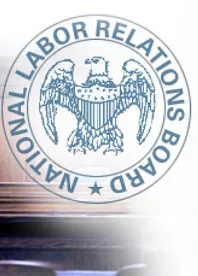The federal appeals court in D.C. has issued a scathing rebuke of the National Labor Relations Board’s blanket nonacquiescence policy and ordered the Board to pay nearly $18,000.00 in attorney’s fees for what the court deemed bad faith litigation. Heartland Plymouth Court MI, LLC, d/b/a Heartland Health Care Center - Plymouth Court, Nos. 15-1034, 15-1045 (D.C. Cir. Sept. 30, 2016). The Court found a clear case of bad faith litigation and a stubborn refusal by the Board to recognize any law of any circuit that conflicts with its precedent. Moreover, because the Board’s obstinacy forced Heartland to spend time and resources fighting for a freedom the Board knew the Court precedent would provide, the Court approved the award of attorney’s fees to ensure “administrative hubris does not get the last word under our Constitution.”
The Court’s decision came on the heels of Heartland’s second (successful) petition for review of a Board Order finding Heartland violated its collective bargaining agreement by failing to bargain over the effects of reducing employee hours because a clear and unmistakable waiver of that bargaining obligation did not exist. The Board set aside its first Order and, as a result, Heartland’s first appeal was dismissed after the Supreme Court’s 2014 decision in Noel Canning, 134 S. Ct. 2550.
The Court noted its “fundamental and long-running disagreement” with the Board on whether an employer’s refusal to bargain on a matter allegedly contained in a collective bargaining agreement requires a “clear and unmistakable” waiver. The Circuit’s well-established precedent rejects this view, considering the contents of a CBA a question of “contract coverage.” See, e.g., Graymont PA, Inc., 364 NLRB No. 376 (June 29, 2016).
Opposing Heartland’s motion for fees, the Board said its general policy of not recognizing any circuit court’s interpretation of the NLRA that conflicts with Board precedent (colloquially, “nonacquiescence”) is justified because: (1) the NLRA’s multi-venue provision means the Board will not know which circuit will govern the enforcement of its orders on appeal; and (2) the Board’s “uniform and nationwide” jurisdiction over labor policy gives it the right to disagree with any circuit, whenever it wants.
Pulling no punches, the Court shot down the Board’s proposed justification. The Court stated that, while the Board proffers nonacquiescence “as a sophisticated tool towards national uniformity[, it] can just as easily be an instrument of oppression, allowing the government to tell its citizens: ‘We don’t care what the law says, if you want to beat us, you will have to fight us.’” The Court clarified that “nonacquiescence is justifiable only as a means to judicial finality, not agency aggrandizement.”
Thus, to achieve judicial finality through national uniformity, the Court explained, nonacquiescence must rest on the following conditions: (1) the Board must actually seek Supreme Court review of adverse decisions; (2) the Board must demonstrate candor in its application; and (3) the Board must take into account whether venue uncertainty exists.
In this case, the Court found the Board had failed on every front. Despite the Court’s long-standing “contract coverage” precedent, the Board “steadfast[ly] refus[ed] to seek certiorari” or even an “en banc reconsideration” of that precedent. The Court found this entrenched position evidence of bad faith and an “evasion of finality in the name of hegemony.” Similarly, the Court noted a lack of candor regarding how the Board handled the Circuit’s “contract coverage” precedent. Rather than confess the error of its Order under the law, the Board urged the appellate court to embrace the reasonableness of its “clear and unmistakable” waiver analysis and asserted, without explanation, that no true conflict existed. The Court deemed this “intolerable” and likened the Board’s strategy to “mak[ing] legal contentions not warranted by existing law and supported by no argument for modifying, reversing, or establishing new law.”
Finally, the Court found that “nothing about the National Labor Relations Act’s multi-venue provision sanitize[d its] eleventh-hour nonacquiescence plea.” The Board was aware that a ruling against Heartland would prompt an appeal to the District of Columbia Circuit, because it already did (pre-Noel Canning). It also noted the Board did not even attempt to file its petition for enforcement, or seek transfer of venue to the Sixth Circuit, a jurisdiction that has adopted the Board’s “clear and unmistakable” waiver policy and maintains favorable case law to the Board’s Order. Instead, the Court rationalized, the Board elected to file its petition in the D.C. Circuit as a punitive measure. It stated, “The Board chose to put its Order on a suicide mission with [the Court’s] precedent simply to lock horns with Heartland. The Board was the perpetrator here, not venue uncertainty.”
The Court also took offense at the Board’s extreme view of its nonacquiescence policy, noting that under the Board’s justification, it could employ the doctrine: (1) without ever saying so to the Court until after judgment is entered; (2) without ever seeking certiorari to resolve the disputed issue; (3) when it knows what law will apply in advance of the appeal; and (4) even when every circuit in the country disagrees with it.
For employers that have cases where the Board has not acquiesced to a circuit court’s precedent, and where the Board does not seek certiorari or an en banc review, this decision may help shorten litigation, or at least provide a good faith basis for seeking attorney’s fees if the Board decides to pursue the appeal.
We will continue to monitor this case and will provide updates on subsequent circuit court decisions that can be used to strengthen this defensive tool for employers.






 />i
/>i
